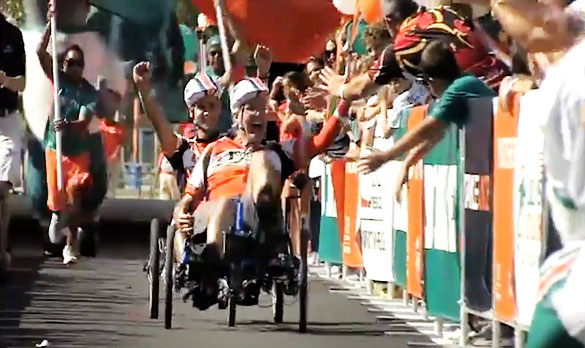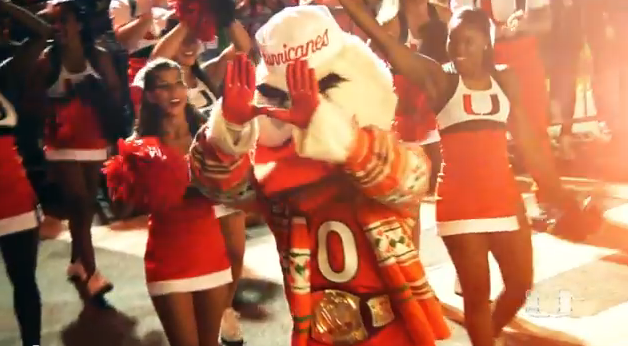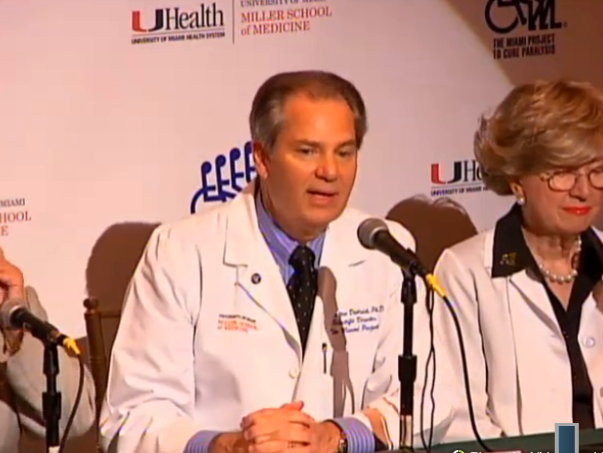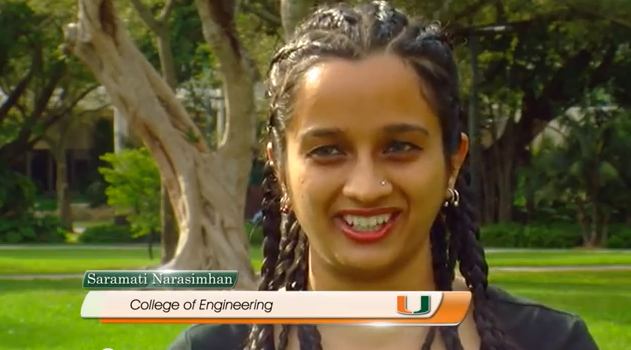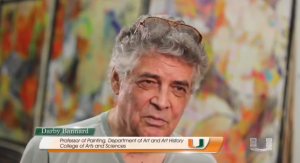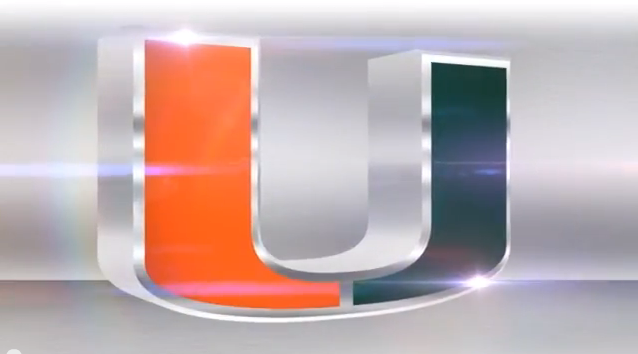BY ROBIN SHEAR
ILLUSTRATION BY TOM NICK COCOTOS
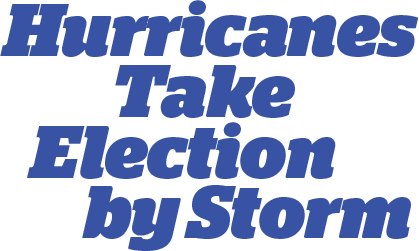
From White House insiders and voter turnout to student “dreamers” and the American Dream—representing orange and green has never looked so red, white, and blue.
ELECTION 2016 IS LONG OVER. A NEW U.S. PRESIDENT HAS BEEN SWORN IN, AND THE WORK of governing the country continues amid a maelstrom of political debates and policy changes. But this wasn’t just any campaign cycle, and University of Miami faculty, students, and alumni have been—and continue to be—involved at just about every level. ![]() From former presidential hopeful Marco Rubio, J.D. ’96, to current White House Chief of Staff Reince Priebus, J.D. ’98, Republican pundit Ana Navarro, A.B. ’93, and Univision journalist Jorge Ramos, M.A. ’96, alumni figured prominently in one of the most deeply divided, unpredictable presidential races in U.S. history. Earlier this year, Helen Aguirre Ferré, M.A. ’83, was named a special assistant to the president and White House director of media affairs, making her one of the administration’s highest-ranking Hispanics.
From former presidential hopeful Marco Rubio, J.D. ’96, to current White House Chief of Staff Reince Priebus, J.D. ’98, Republican pundit Ana Navarro, A.B. ’93, and Univision journalist Jorge Ramos, M.A. ’96, alumni figured prominently in one of the most deeply divided, unpredictable presidential races in U.S. history. Earlier this year, Helen Aguirre Ferré, M.A. ’83, was named a special assistant to the president and White House director of media affairs, making her one of the administration’s highest-ranking Hispanics. ![]() And while overall voter turnout was up only slightly from 2012, civic participation among students at UM hit new highs.
And while overall voter turnout was up only slightly from 2012, civic participation among students at UM hit new highs.
‘A Celebration of Democracy’
Monica Bustinza, a political science major, helped revive the U’s dormant chapter of the nonpartisan voter registration group Get Out The Vote (GOTV). With help from other student organizations, fraternities, and sororities, GOTV added a record 2,500 UM students to the voter rolls.
Likely thanks to GOTV’s outreach and educational efforts, the Watsco Center (formerly BankUnited)—one of three precincts where UM students could vote locally—reported 85 percent turnout among its 1,965 registered voters, putting it in the top 20 for voter turnout among Miami-Dade County’s nearly 785 precincts.
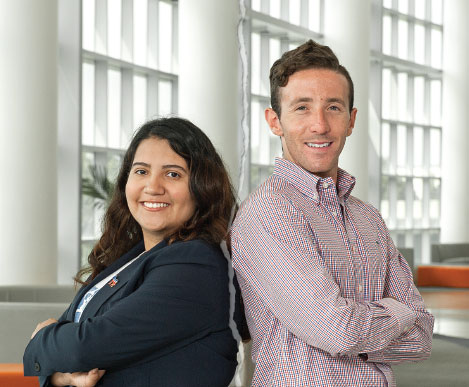
Politics, not as usual: The UM College Democrats, led by sophomore Angelica Duque, and the UM College Republicans, led by senior Christopher Dalton, share office space at the Shalala Student Center.
First-year student Courtney Kloepper chose to register in Florida instead of her home state of Kansas because, she noted, “I know my vote matters in a swing state.”
Further fueling student involvement was the comprehensive political science course offered every four years by the College of Arts and Sciences. A record number of students, nearly 300, enrolled in Election 2016 to learn about a range of issues, including voter fraud, the 26th Amendment on voter rights, Interstate-4 corridor demographics in Central Florida, how the Electoral College works, and the role journalism and social media play in today’s political arena.
“UM has a rich tradition of engagement with presidential elections,” said Casey Klofstad, an associate professor of political science, who helped inaugurate UM’s POL 408 election course during the Obama/McCain race in 2008.
Joseph Uscinski, an associate professor of political science who co-taught Election 2016 with Klofstad and two other colleagues, isn’t surprised by the enthusiasm they encountered for the subject matter. “Students watch what is going on in the news, and all they hear is a lot of nastiness,” said Uscinski. “They are millennials who want to understand fully what is going on.”
As a conspiracy theory expert, Uscinski is particularly focused on the influence our rapidly changing information environment is having on an electorate of all ages and affiliations.
“In an American democracy, people are called upon to go out and vote, and the hope is that they have good information,” Uscinski said in his new ’Cane Talk on the topic. “Now we have fake news and conspiracy theories—and people listen to that instead of authoritative information. And that is going to impact not only our democracy but our personal decision-making.”
The Election 2016 course, however, enabled students to glean insights directly from The Beltway and beyond, from over a dozen guest lecturers, including Carlos Curbelo, B.B.A. ’02, M.P.A. ’12, who co-chairs the 36-member bipartisan Climate Solutions Caucus, and fellow member Ileana Ros-Lehtinen, Ed.D. ’04, both Republican U.S. representatives from Miami; former U.S. Representatives Allen West (R-FL) and Patrick Murphy (D-FL), B.B.A. ’06; local filmmaker and activist Billy Corben, B.S.C. ’04; Donald Trump advisor Roger Stone; and White House political director David Simas, who was Skyped in from the West Wing on December 6.
The students took part in instant polling exercises and critically analyzed debates before watching history unfold before their eyes at an Election Night viewing party November 8 in the UM Fieldhouse at the Watsco Center.
Another big Election Night Watch Party on campus, this one hosted by GOTV, the College Republicans, the College Democrats, and the Division of Student Affairs, took place at the Rathskeller. With ABC News and Telemundo broadcasting live, chants of “I Believe SHE Will Win!” and “Make America Great Again!” intermingled late into the night.
“Regardless of whom you voted for, this is a celebration of democracy,” UM President Julio Frenk told students as he visited both election night events in the hours before Donald Trump was named the nation’s 45th president. Applauding the “peaceful enthusiasm” he had witnessed, Frenk said later that listening to and learning from each other would guide the way forward in these times of change. “We will stay focused on being an exemplary university—one that fosters respectful dialogue on challenging topics in the quest to find truth and understand each other better.”
‘Moving Forward’
For many UM students, 2016 was their first chance to choose a president. Their efforts did not end on voting day.
Within a couple of weeks of the election, one group of first-year students had organized “Moving Forward,” a rally on the Coral Gables campus to address what they described as “the politics of division.”
“Across both parties we could work toward policies, work towards change that benefits everyone,” Moving Forward co-organizer Josh Kleinman told NBC 6 South Florida.
“We just want to make sure everyone on campus and in our country feels like they’re loved and they know people out here care for them and their rights,” added co-organizer Calvin Chappell, referring to Trump’s campaign promises of erecting a wall between the U.S. and Mexico and other proposed measures affecting immigrants.
“Regardless of whom you voted for,
this is a celebration of democracy.”
At UM, recently named a Voter Friendly Campus by the Campus Vote Project, Get Out The Vote has remained active. It has followed its successful voter registration campaign with continuing nonpartisan educational programming, such as a forum titled “What Now?” as well as “Evolving Awareness” discussions on gender and politics, state and local government, the environment, and refugees and migration.
Citizen U, a new program of the Butler Center for Service and Leadership, devoted its spring presentation to addressing how students can become politically engaged in the Miami community.
“I am extremely proud of our students for making their voices heard in this election,” said GOTV member Stefanie Rodriguez, a junior political science major whose parents fled Cuba during the Castro dictatorship. As one of nine students selected to serve on the Student Advisory Board of the Fair Elections Legal Network’s bipartisan Campus Vote Project, Rodriguez will continue to help student voices rise above the din.
Noting low numbers of women entering Congress, political science major Angelica Duque, who is president of the UM College Democrats, spearheaded a nonpartisan training session attended by over 40 undergraduates. Elect Her, headlined by local female lawmakers, was aimed at helping students develop their campaigns for leadership positions on and off campus.
UM schools and colleges are exploring post-election issues as well, from a forum on health care presented by the School of Business Administration to a panel discussion organized by the Department of Political Science titled 100 Days of Trump.
In the wake of executive orders from the White House, the School of Law’s Immigration Clinic has been offering free and confidential legal aid to students who are undocumented or in DACA (Deferred Action for Childhood Arrivals) status. The clinic has also held a teach-in to examine the “scope and legality of President Trump’s executive order barring people from [six] predominantly Muslim countries from entering the United States for 90 days, and shutting down the Syrian refugee program indefinitely.”
This past January, Frenk joined with more than 600 college and university presidents from public and private U.S. institutions to sign a statement in support of the DACA program and undocumented immigrant students, also known as “dreamers,” emphasizing that these students “represent what is best about America, and as scholars and leaders they are essential to the future.”
He added that the University will do all it can within the law to enable them to continue their education and employment. He cited academic, legal, and personal resources available to the campus community, such as the four-year U Dreamers Grant for eligible DACA students.
In an official statement, Frenk encouraged members of the U community to “express to your fellow ’Canes that they are welcome at our shared home, the University of Miami.”
Reinforcing the University’s mission of building bridges, the University’s College Republicans and College Democrats demonstrated unity during what has been called one of the most divisive periods in U.S. memory. For the first time in UM history, they are working literally side by side in shared office space—at least until 2020—a decision they made back in September.
“I think it’s a great thing because it’s symbolic of the real world,” Madolyn Guillard, a junior who served as secretary for the UM College Republicans, told The Miami Hurricane. “Conservatives and liberals should not be separated, but rather should be able to exist together. They should be able to communicate effectively and listen to each other’s perspectives, even if they do not align.”
Though an outspoken critic of Trump, alumna Navarro, a frequent contributor to CNN, ABC News, and The View, also sees common ground for the kind of democracy and American Dream her family fled decades ago in war-torn Nicaragua to find in the United States.
“There is nothing more American than acknowledging that even if we don’t agree politically, even if we don’t agree with the president, even if we don’t like each other, all of us have the same rights,” she has said. “If we remember that one thing, we will be OK.”
Reporting by Barbara Gutierrez, Andres Tamayo, and Nosa James, ’20.
Related Stories
Election Night Draws Campus Crowds
UM Students Recognized for Voter Engagement


 Follow
Follow

